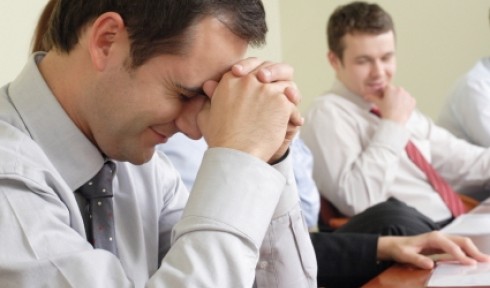Do you find your mind wandering in long meetings? Could you do with a little more concentration and focus?
My observations of typical business owners is that they are often running all day from meeting to meeting, rushing to respond to emails and mobile calls in between. Whilst on the surface it looks productive, further observations, from situations such as chairing Board meetings, running away-day events or conducting negotiations, is that many business leaders frequently struggle to concentrate and stay focused on one thing for any significant period of time.
Does it matter? And if so, what can you do about it?
Well yes it does matter! (No surprise). Let’s take the potential impact from some of these typical scenarios:
• Board meeting – hopefully there should be high quality thinking about how the business is doing and where it’s going. If key people are not able to contribute at 100% because their mind is wandering, the worst outcome is poor decisions, closely followed by delayed decisions or simply ineffective use of time, as the discussion takes longer than planned
• Away-days – should be generating fresh ideas on anything from particular operational issues, to longer term strategy development. Again, having all participants on the ball is crucial to achieve a robust outcome, otherwise there’s a lot of waste in people’s time and venue costs
• Negotiations – it’s crucial to listen out for the nuances, signals , nervous twitches and every other thing you can think of to increase your chances of securing a good deal. It’s not unusual that it might take hours, perhaps even days or weeks to secure an agreement. Even just a 1% gain on a multi-million deal is worth having, in my book
How would you rate yourself? How many hours can you remain focused and on the ball? How does this compare with what you are required to do to deliver top performance?
Assuming whatever level you’re at you want to improve, here are five steps to build your concentration and focus:
1) Prepare in advance. No secret here – but how often do you actually take the time to prepare a detailed agenda for the meeting – and think through all the points you want to raise?
2) Take notes. Depending on the situation, you might be able to have someone else take notes for you. Assuming in the worst case scenario there isn’t, the more comprehensive, yet concise you can make your notes the better.
A process I’ve been using for the last 18 months and would highly recommend is SmartWisdom. It’s described as advanced note taking – personally I’d call it mind mapping on steroids.
3) Take breaks and do remember to eat! If I’m running a long meeting I’d never go for more than 1 ½ hours without a break. Because people often haven’t planned properly, they’ve not thought about any food requirements and hope that the meeting will wrap up soon. This might mean you end up at 3pm, with people who’ve not had anything to eat or drink.
There’s then what kind of food; typical lunch menus for meetings are often the things that will kill concentration – lots of bread/sugary snacks/crisps and soft drinks. If you’re worried about the cost of having something more healthier such as salads or sushi – work out the costs of having the people there and the impact of the decisions you’re expecting them to take and put it in perspective. I’ve got the nick name “squirrel” with some clients as I’ve always got a supply of almonds with me!
4) Train your mind. I maybe fortunate in that some of my hobbies help develop concentration over several hours.
For instance whilst playing the cello, I’m frequently playing with others for 4 hours of more with only one break – and concentrating hard as I’m often going through music for the first time.
Or in Toastmasters International meetings, I maybe called upon to review a two hour meeting and need to have been paying attention throughout.
What hobbies do you have – or could you have – that could be used to develop your concentration?
5) Build your physical stamina. Some of the most challenging situations I’ve found can be meetings abroad. You’ve probably had to get up at the crack of dawn (or arrived late the night before after a long day), and are either having to speak in a foreign language, or at least working with others who are – and whose English may not be 100% – meaning you’ve got to work harder to understand them.
I’d assert that if you’ve got good physical stamina, you stand a better chance of performing in these types of situation. So are you up for activities such as triathlons, long hikes, or dancing to boost your stamina?
Some of you might have turned pale at the thought of doing strenuous exercise, or any other type of improvement activity and have already made the easy dismissal – “I haven’t got time for that”.
From my observations, top performers do make time – it’s your call on whether it’s of sufficient importance to your business that you’re at your best for those long meetings.


